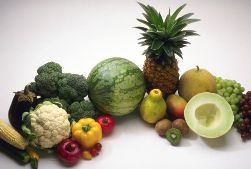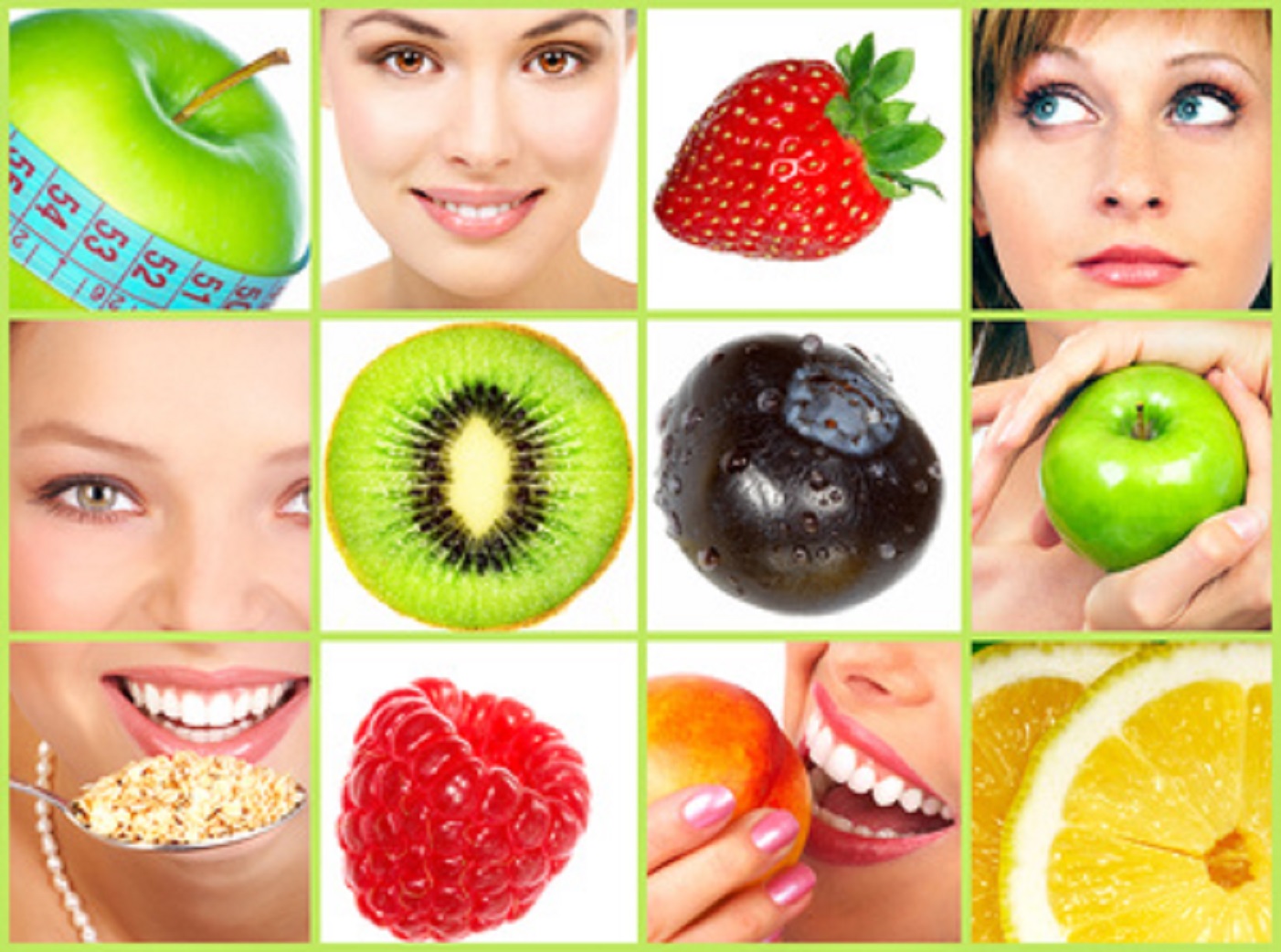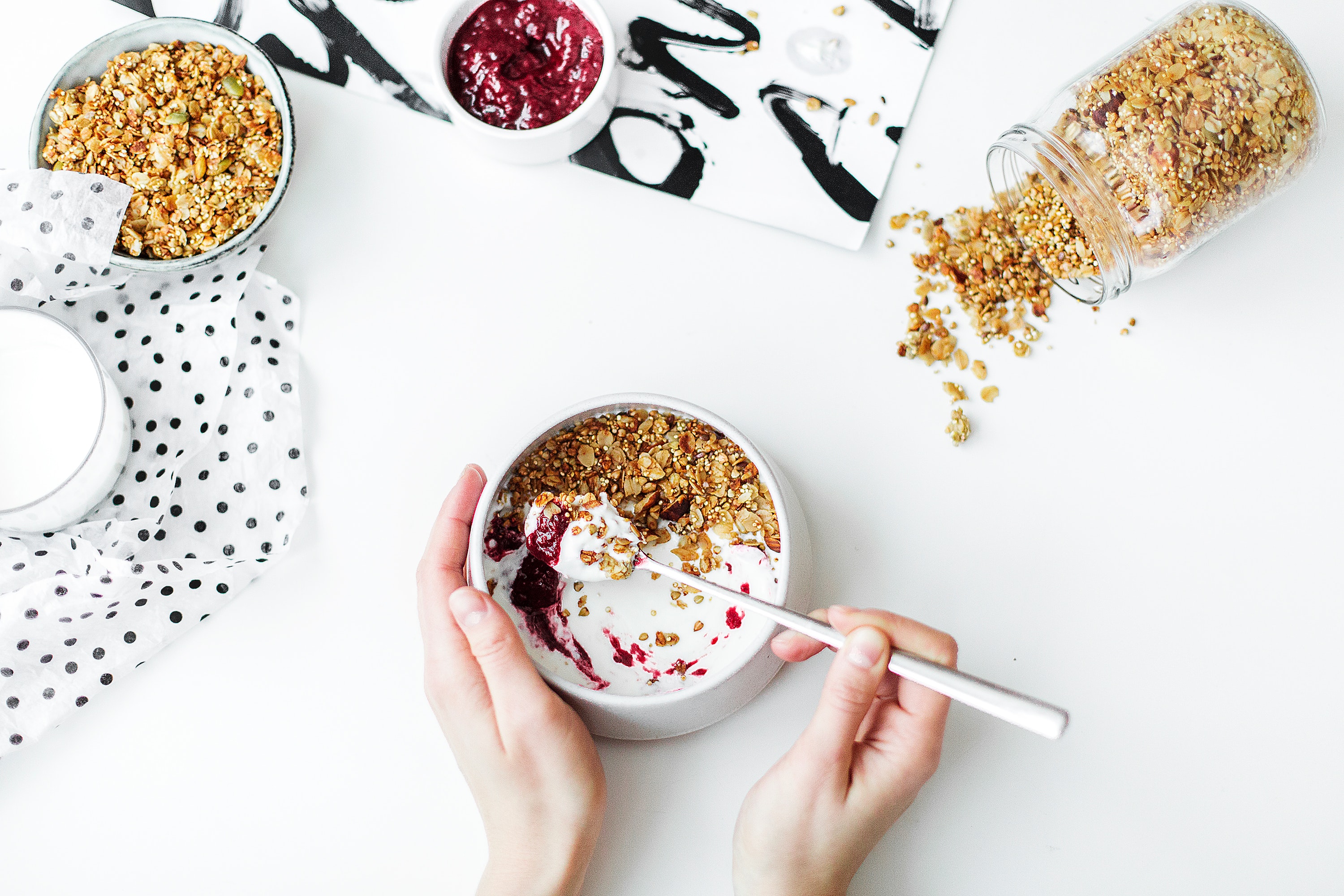Nutrition Based Prevention & Cures to Fight Disease with Food!
A nutrition health guide from Your Health Online the A to Z directory of dealing with Health Problems & nutritional Self Care Strategies

Nutrition Based Guide to learn about Nutritional Prevention and Cures You Can Count
on to Restore Your Health Naturally.
We live in a society where treatment rules over prevention, where the medical community shuns (or hides) natural treatments, and where consumers have to take matters into their own hands if they want to be educated about all of their options.
When it comes to your health, you need to know that you’re not at the mercy of your genetics and you don’t have to rely on drug treatments for everything.
You also can’t rest on your laurels until something bad happens – you need to take a preventative approach to your health while addressing any issues that have already crept up.
Doctors Rarely Discuss Preventative Medicine in Depth
Very few doctors sit down with their patients and help them work out a regimen of preventative medicine.
There’s no money in healthy patients, so it’s in their best interest – as well as the pharmaceutical companies – to treat you after you’ve already acquired a disease.
It’s not all a conspiracy, though. There’s not enough time to sit down with a patient and go over a customized plan – not when you’re looking at a waiting room full of ill patients.
You, as a consumer, have to take control and educate yourself. You can certainly ask your doctor about his or her recommendations for disease prevention, but you’re likely to just get very broad, generic answers – and no details to back it up.
Reliance on prescriptions has become commonplace – so much so that the CDC (Centers for Disease Control), is now issuing warnings about overuse of antibiotics, for example.
Instead of a doctor sitting you down and teaching you how to keep your immune system beefed up so that you won’t get sick, for example, he or she simply waits.
When you’ve come down with something, they then whip out their Rx pad to write you a prescription for antibiotics and steroids and perhaps some cough medicine to quell the symptoms.
You Have Options
There are definitely natural ways to treat things like this – to quell a Cough, for example – but you won’t hear that from the doctor (or the pharmacist), because that’s not where the money is.
Imagine if you knew how to treat the Flu on your own. Your doctor wouldn’t be able to keep his practice open if everyone were armed with that information! So you’re kept in the dark.
Prescriptions are expensive – whether you’re paying for them out of pocket, or your insurance company is paying for them. Eventually, it comes out of your pocket through increased premiums.
There are many ways to treat and prevent disease.
Food is one source. Healing your body (or strengthening it) from the inside out, helps you develop cells that can battle disease before they take root in your body.
There are also alternative and holistic measures you can take to create your own treatment and healing plan. You might want a combination of natural and traditional disease prevention.
Or example, you get your kids immunized against disease to help protect them. But you also teach them how to wash their hands to prevent the spread of germs – and you feed them immune-boosting foods that help keep them healthy and fend of attacks by germs.
You can do the same with disease. When it comes to cancer, for example – you want to eat plenty of antioxidants, but you also want to have cancer screenings to catch any disease that occurs.
If you do develop the disease, you’ll probably embark on a journey to get the very best medical treatment available to you in the traditional sense.
But you also will probably find information about nutrition and other treatments that help heal cancer naturally.
Natural Methods to Boost Your Health to Optimal Levels

In order to better manage your health, you need to take a five-point approach to preventing and healing your body.
We’re going to go over all five right now, but then pick
the most important one to focus on in depth – nutrition.
Sleep
Getting enough rest is imperative in allowing your body to do its work to repair your body at a cellular level. Many people suffer from sleep issues – some slightly and some who suffer from extreme insomnia.
It’s a proven fact that those who don’t get enough sleep often endure consequences for it – like increased risk of diabetes, high blood pressure and coronary disease.
This is only part of the problem. These same individuals are often plagued with stress because they’re not getting enough sleep, so they end up spiraling down into a deep depression.
When these factors combine, it leads to a shortened life expectancy.
Luckily, this is something you can control naturally – it doesn’t require dangerous sleeping pills.
Start with better sleep hygiene. Take a good, hard look at how your sleep set-up is.
Is your room cool enough? Is it quiet and dark? Are your sheets, pillows, mattress and blankets comfortable?
What do you do before bed? It shouldn’t be stimulating to your mind.
Read, take a bath – but stay off the electronic gadgets.
If you’ve done all of that and still aren’t sleeping, then you can use nutrition to help you get more sleep!
Foods rich in antioxidants help you get more sleep. Make sure the foods are packed with vitamin C and selenium.
This is perfect for those who don’t get enough sleep – but what about those who sleep, and still feel tired anyway?
Sometimes quality of sleep is what makes the difference. Try eating an ounce of dark chocolate and adding some turkey and eggs to your nutritional regimen.
This
will help send you into that deep, relaxing slumber you need to awaken feeling
refreshed.
Learn more here about Sleep - daily requirements
Exercise
Moving your body is a great, natural way to stave off disease and reverse health problems you may have. Researchers know that it has the ability to prevent and heal heart disease.
It also helps reverse diabetes – and many people find that they’re able to get off of insulin because of their combined nutrition and exercise plan. Hopping on a treadmill and getting some cardio into your day can benefit you if you have high blood pressure, too.
As for prevention, those who exercise have a smaller risk of developing colon cancer. And if osteoporosis is a concern, then moving your body will help strengthen, not weaken, your bones.
You want to engage in exercise that gives your whole body a workout. When you engage in cardiovascular exercise, like jogging or aerobics, then your heart gains strength, your blood pressure is kept under control, and your cholesterol levels benefit.
Believe it or not, nutrition factors in heavily to your workout success. Your body uses food as fuel to get you through all of your workouts – and it helps you recover from them, too.
Carbs are very
important for people doing high levels of activity. And it’s the amino acids in
protein that assist you in repairing the muscles that you break down when
you’re strength-training.
Learn more here about Exercise for health
Nutrition
We’ll get into this in much more detail shortly, but let’s touch on how important food is to your well being.
Growing up, you probably heard little snippets of advice – like how chicken broth helps cure a cold.
And it’s not an old wives’ tale, either! Researchers at the University of Nebraska Medical Center in Omaha broke it down and discovered that the properties found in chicken broth really do suppress the symptoms of a common cold.
There are many ways that food can help your body. You’ve already seen some of the healing properties being discussed, like protein being necessary for your muscles to heal after a workout.
You can also boost your immune system, increase your memory retention, and keep many major diseases (heart disease, diabetes, cancer, etc.) at bay – just by using food to empower your body at a cellular level.
To Download a Free Report on Nutrition for Your Cells that you can give or email to others to read >> CLICK HERE
Stress Relief
Stress is one of the primary issues men and women (and even teens) suffer form today that result in poor health. In fact, it’s estimated that 70-90% of all doctor’s visits originate from stress.
Stress starts off as a reaction in your body that you see as mental. It’s your mind’s reaction to something that angers or saddens you.
But your body is undergoing a physical reaction beneath the surface.
It’s flooded with cortisol, the “fight or flight” hormone. This isn’t harmful on occasion, but if you suffer form chronic daily stress, it starts to take a toll on your body, and you will begin seeing increased symptoms of disease.
For example, stress directly affects your insulin levels. It has the ability to keep your blood pressure raised to dangerous levels.
It also hinders your chance to steer clear of (or recover from) cancer.
The National Caner Institute reports that there’s evidence that stress affects your clinical results for becoming cancer-free with treatment.
Stress causes common health issues, too, including:
· Flu
· Insomnia
· Digestive issues
· Urinary problems
· Infertility
· Headaches
You have to get it under control before you turn to a doctor for help with his or her prescription pad. What’s the best way to do that? You can have your pick of many options.
You can use exercise to release endorphins, food to deliver a calming state of mind, mind relaxation techniques such as neuro-linguistic programming, emotional freedom technique EFT TAPPING THERAPY, or even meditation.
If you just need a little help, you might turn
to aromatherapy or massage for the stress relief you need.
Learn more here about Stress management
Elimination of Risky Behaviors

One of the best things you can do for your health is to get rid of the risks that you’re taking.
Increasing healthy behaviors (like stress relief, nutrition, sleep and exercise) are just part of the equation.
What can you eliminate?
Drinking is always touted in medical articles as having the ability to benefit you.
While it’s true that some moderate alcohol has been shown to benefit heart health, overuse only contributes to the probability of disease.
Learn more here about Alcoholism Disease
Smoking is never good – regardless of what they told people in the old days. We now know how harmful it is to you – and to those around you.
Not only are you upping
your chances of developing lung disease, but because it constricts your blood
flow, you’ll be setting yourself up for heart disease, too.
Learn more here about Smoking – how to stop tobacco addiction
Doing drugs – prescription or otherwise – will eventually take a toll on your body.
Your
cells can’t recover quickly from a drug-induced state, so your entire body
becomes weakened against infection and disease.
Learn more here about Addiction Types & Treatments
Risky sexual behaviors are also common. While you might think something like herpes simplex is just a mere nuisance, it actually increases your risk of acquiring major diseases like HIV if you’re not careful about keeping outbreaks under control and your immune system high.
As you can see, you have a whole host of options available to you to help prevent and reverse disease.
Unfortunately, most of us don’t live a healthy lifestyle – we just run to the doctor once something bad happens.
If you’re tired of living like this, and ready to become more reliant on yourself than you are a prescription pad, then it’s time you find a good starting point to manage your health.
Learn more here about HIV - AIDS and Herpes Simplex
Nutrition is the most powerful weapon you have against disease – and it’s something you have to engage in daily anyway.
Nobody’s going to ask you to give up your favorite foods forever.
The key is to add nutrients and optimize your menu wherever possible so that your cells have a chance to flourish and the unhealthy toxins in your body are flushed out so they can’t continue to do more damage.
Foundation for Nutritional Health Before Disease Sets In

When you’re ready to adopt a lifestyle change where you’re using food to fuel and heal your body instead of for comfort, it means you have to look at what’s going in, what needs to be eliminated, and what you can add for better health.
There are two steps to this process.
First, get rid of the foods that are damaging our body from a cellular level.
Second, start feeding yourself foods that help boost your body’s ability to survive and thrive.
Weeding Out Foods That Are Toxic to Your Body
We live in a culture where ingredients are added into our meals and processed foods in a way where we’re rarely, if ever, aware of them.
Sometimes we’ve just been raised to turn to certain foods for comfort, so we don’t view a doughnut (for example) as a toxin, but as something that brings us pleasure.
MSG is known as monosodium glutamate. You regularly find it in Chinese food, but it’s also found in processed meats that you eat, as well as some canned foods like soups and vegetables.
This is an additive to food that can create a toxic reaction in your body, such as headaches, nausea, fatigue, chest pain and more.
Not everyone has a bad reaction, but even if you feel mild discomfort after eating MSG, it’s best to get rid of it in your diet.
Salt is an ingredient that can damage your health. We’re routinely adding extra salt to our food sources, and this isn’t necessary. Almost all foods (even sweet ones) have salt in them.
The guidelines say that if you’re 50 or under, you should limit your salt intake to 2,300 milligrams per day.
If you’re older than 50, you should slash it almost in half – to 1,500 milligrams per day.
You should never stop using salt completely – because you’ll suffer from negative side effects just as you do when you’re consuming too much salt. You need just the right balance.
Sugar isn’t just found in sweets. It’s hidden in many seemingly healthy foods, such as low-fat and light foods.
Even some foods labeled whole grain are packed with grams of sugar – so you have to be vigilant about what you consume.
It’s been reported that Americans typically eat 3 pounds of sugar per person per week. How does it affect your health?
Not only does it damage your immune system, but it also feeds cancer cells, contributes to obesity (and diabetes), and boosts your risk for heart disease.
Gluten is one ingredient that many people have a negative health reaction to.
While many health plans tout grains as a main staple of your meal plans, gluten is found in grains – and it can cause you to have allergic reactions that complicate your health.
Embrace a Basic Health-Driven Nutritional Plan
Unless you’re already suffering from a major medical disease, then you should strive for a healthy, Mediterranean-style diet.
This type of diet feeds your body the foods it needs to protect your organs and overall health.
It’s based on a heart-healthy idea, but if you’re following this type of nutritional regimen, you’ll be helping other parts of your body as well.
A Mediterranean diet consists of:
· Fruits
· Vegetables
· Whole Grains
· Nuts
· Olive Oil
· Seeds
· Legumes
· Beans
· Herbs and Spices
You should eat healthy fish a couple of times a week, dairy and poultry periodically, and red meat and sugary foods infrequently.
While whole grains are a main part of this eating style, that doesn’t mean you have to eat gluten-heavy grains.
You can eat gluten-free grains like corn, quinoa, wild rice, millet, and buckwheat.
You can learn so much here about using optimum nutrition for your cells:
Sometimes disease has already hit your life.
Next, let’s look at five common health issues and how your nutrition plan can assist you in treating or curing them.
Nutrition Management for Diabetics

There’s a big misconception when it comes to diabetes nutrition.
Some people mistakenly think that all you have to do is cut out sugar forever and you’ll be just fine.
That’s not true.
You have to eat strategically in order to keep your blood glucose levels in order. If you’re diabetic, it also means you have to plan when you eat – not just what you eat.
If you skip meals, it can make your diabetes worse – and yet, eating in moderation and losing weight can reverse diabetes so that you’re no longer dependent on insulin.
It’s important to keep your blood sugar levels at a range of 70-130 mg/dL on a regular basis. It should spike to no more than 180 mg/dL a couple of hours after you eat.
What Not to Eat as a Diabetic
The worst thing you can do is deprive yourself of your favorite foods so that you end up binging on them and causing your insulin levels to spike to dangerous levels.
However, you should also make better food choices whenever possible. When it comes to sweets, for example, there are diabetic-friendly options. Fried chips aren’t good for you, but baked chips are better.
Following our plan of ridding your body of toxic foods first, let’s look at the worst foods you can eat if you’re a diabetic.
You want to adhere to a meal plan made up of mostly foods that are low on the Glycemic Index.
That means these foods spike your insulin levels the least amount.
You can find foods ranked on this index so that you know what kinds of changes it will cause in your body.
Foods that are bad for your blood glucose include:
· White bread
· Pasta
· White potatoes
· Popcorn
· Candy
· Cereal
· Watermelon
· Pineapple
If you do add a food high on the glycemic index, then you can balance it out with foods lower on the scale, too.
Try to moderate the portions that you consume – and watch out for seemingly healthy foods (like raisins), which have an unhealthy volume of natural sugars in them.
While you’re managing your meals, fueling your body throughout the day with foods that aren’t detrimental to your health, you want to also lay off the sodas – including diet drinks.
Drink plenty of water instead. Even juice, which sounds healthy because it comes from a fruit, is often packed with sugar that can harm your recovery plans as a diabetic.
Feed Your Body the Right Nutrition for Diabetes

After ridding yourself of toxins that keep your body in a perpetual state of insulin dependency, you’ll want to begin reversing this health problem by feeding your body foods that help it maintain balance.
There are certain foods that are superb for diabetics to eat.
Start by trying to add dark, leafy green vegetables into your meal plan.
From spinach with your omelet to a side of greens at lunch and dinner, this superfood helps diabetics feel full without overloading them on unhealthy carbs and too many calories.
Kale is one of the best leafy greens to eat. But there are others (in addition to spinach), too.
You can try a variety to see what taste you prefer – such as mustard green, collard greens, and turnip greens.
While pizza might not be healthy for a diabetic, the tomato sauce is.
Pasta isn’t usually a good option, so what you can do is get your supply of tomatoes either by eating them raw or in a sauce poured over whole grain pasts instead.
Tomatoes are healthy for diabetics because they’re full of vitamins and nutrients. They include vitamin E and C as well as plenty of iron.
You can get tomatoes in the form of soup, too – but make sure that however you eat them, you’re checking to see how much added sugar is in the product and how many carbs it’s loaded with.
Beans are a great food for diabetics. The fiber they pack is virtually unparalleled.
They’re also very filling, and you get a lot of potassium and magnesium in each serving.
Even though they’re starches, they’re packed with protein, so you can forego the saturated fat that’s found in meat and eat healthy beans instead.
The soluble fiber in beans binds to the carbs and helps slow the digestive process, keeping your insulin levels stable.
Potatoes are a food that aren’t usually good for diabetics, but those are Russet potatoes – not the sweet potatoes, which are one of the diabetic superfoods you can eat.
White potatoes have a high GI but sweet potatoes have a low GI, and they’re full of fiber and vitamin A.
You can bake them whole or cut them into fries and bake them for a healthy snack.
If you’re diabetic, following a Mediterranean diet can be beneficial for you – especially if you eat fish that’s high in Omega-3 fatty acids.
That includes salmon and tuna – but make sure it’s cooked in a healthy manner, like baked or broiled.
When it comes to fruit, not all fruit is good for a diabetic person to eat.
But some can help – such as citrus options – oranges, grapefruit, and even lemons and limes – which you can put in your water for a flavorful option.
You get fiber and vitamin C – and it helps boost your immune system in the process.
Bread is a hard thing to give up, but white bread is something that can cause a spike in your blood glucose.
Go with whole grain bread options instead. That way you get some omega-3 fatty acids, folate and chromium to help your body heal, too.
Some of the other foods that are perfect for diabetics include berries (all kinds) – for their fiber and nutrients as well as nuts and seeds, such as walnuts and flax seeds, which fill you with fiber and help stave off hunger for long periods of time.
Diary products can be tricky. Just make sure you choose healthy diary that’s not flooded with sugar.
You need the vitamin D for strong bones and healthy teeth, but you don’t want the spike in insulin.
When it comes to shopping for foods to treat and reverse diabetes, stick to the outer edge of the grocery store, away from the processed foods that won’t serve your body well.
Nutrition to Prevent and Reverse Heart Disease

Heart disease is a health issue that sneaks up on you.
You typically don’t know that you’re suffering from it until you begin experiencing dangerous symptoms.
Regardless of whether you’ve already confirmed that you have heart disease, or you’re trying to ensure you never get it, you can use food to manage the situation to a large degree.
Heart disease is when your arteries are becoming partially or fully blocked from the build up of plaque, cutting off the blood supply to your heart and causing portions of it to die.
Heart disease is the number one killer of both men and women in the United States, so you definitely want to adhere to a diet that helps break up plaque in your arteries even if you’re not showing signs of the disease just yet.
Eliminate Plaque Building Foods from Your Diet
The first thing you want to do is be kind to your body in terms of portion sizes.
While it can handle a little bit of the “bad” foods, your body can become overwhelmed when you’re eating enough for three people.
If you’re used to consuming huge portions, it can be tough to suddenly cut back – so choose low calorie, healthy foods like dark, leafy greens that you can basically eat an unlimited amount of.
In our steps to use nutrition to fight back against disease, you first want to look at what you need to eat less (if any) of. That includes trans fat, like the kinds found in fried foods (think doughnuts).
Red meat and whole fat dairy has a lot of trans fat, too – but you can choose better options, like lean meats (not marbled) and low-fat milk options such as 1% or skim.
Watch out for other dairy foods like cheese and ice cream. Some of them are high in fat and will clog your arteries quickly, as will any highly processed meats, such as hot dogs and sandwich meat.
Whenever you go to the store, try buying as many fresh ingredients as possible.
Prepackaged foods are usually high in sodium (salt), and this contributes to heart disease, too – so stay away from those.
We’ll talk about which fruits and vegetables to fuel your body with shortly, but there are also some you want to avoid.
It’s great to eat vegetables and fruits, but don’t buy prepackages vegetables slathered in cream-based sauces, or fruit canned with a high sugar syrup.
Grains are a staple of a heart-healthy diet, but not grains that have been processed and stripped of their nutrients.
Avoid white grains, like white bread, cakes, biscuits, and even some seemingly healthy muffins.
When you’re cooking, you want to stay away from fats that are solid at room temperature, like butter or margarine. Instead, use healthier fats like olive oil, which help reverse signs of heart disease.
Some people think that if a product has “coconut oil” listed as an ingredient, then it must be healthy. But coconut oil isn’t friendly to your heart health, so look for that as an ingredient and steer clear.
You always want to stick to a diet that will keep your LDL (bad) cholesterol levels low and your HDL (good) cholesterol levels high.
A study was performed by the Harvard School of Public Health, which surveyed Americans and found out that the most common and most harmful plaque-building foods we eat are:
· Cheese
· Pizza
· Desserts made of grains (like cakes)
· Desserts made of dairy (like ice cream)
· Chicken
· Pork
· Beef
· Milk
· Pasta
· Eggs
· Candy
· Butter
Of course, when you look at the above list, you can probably instantly spot some immediate healthier substitutes you can make just by choosing low fat options or whole grain options instead of full fat or white, processed ones.
Add in Foods That Clear Plaque and Boost Heart Health

Some foods will harm your heart health depending on how you cook them.
For instance, chicken can be prepared healthfully, but if you leave the skin on and fry it, it won’t be healthy at all.
If you’ve prepared a meal from scratch, such as a soup or stew, and you’re reheating it as a leftover meal.
Try to skim the solidified fat off the top and throw it away before you turn on the stove.
Your heart needs a good balance of lean meats, fruits, vegetables, whole grains, nuts and seeds.
You’re looking for lots of fiber to help flush out the plaque from your system.
Some of the best grains to eat include:
· Whole grain bread and pasta
· High fiber cereal and oatmeal
· Brown rice
· Flaxseed
Vegetables should be a staple in your diet.
Asparagus and bell peppers (which have tons of B6) help keep your homocysteine levels low – something that contributes to heart disease.
Try to get a rainbow of vegetables in your diet. Combined with fruits, you should be aiming for 8 or more servings per day. Choose fresh, not canned or frozen options.
Nuts like almonds and walnuts – as well as seeds – all have a heart healthy effect on your body.
These are filling snacks – you can grab a handful of almonds instead of a dessert cake and feel full for hours.
Meat should be as healthy as you can find it. Salmon and tuna are best for their Omega-3 benefits, but if you go with red meat, choose lean, un-marbled varieties.
Managing your heart health can be as simple as making small tweaks to your diet, or it might requires you to do a full overhaul of your nutrition plan.
Keep in mind that exercise can help protect your heart, too!
Nutrition That Fights Inflammation

While inflammation isn’t necessarily anything that will cut your longevity short, it is something that quickly deteriorates your quality of life.
Living in pain isn’t something anyone wants to experience.
Inflammation is when your body is trying to protect you, but it ends up creating pain instead.
It hones in on something that needs to be attacked – like irritants or unhealthy cells – and normally, it would help heal you.
But inflammation takes a wrong turn when it actually goes too far and the inflammation hurts more than the infection.
You can tell if you have inflammation because you’ll experience pain, swelling, redness
It can benefit you, for instance if you hurt your knee, because it alerts you to the fact that you’ve damaged your tissues – so it helps you go easy on your joints until the tissue is able to heal.
However, the inflammation something makes it harder to recover, and more inflammation occurs because of the initial flare-up, so you need something to quell the inflammation – and food can be your helper!
Inflammation in and of itself isn’t life threatening. But it’s been linked to other health concerns like diabetes and cancer.
If you go to the doctor for a health concern, you’ll find that many diagnoses turn out to have some level of inflammation – such as a swollen throat due to a common cold.
So even if it’s not terminal, keeping inflammation at bay helps you life a healthier life.
Toxic Foods That Cause Inflammation Flare-Ups
Adhering to our “remove and replace” regimen for fighting disease with foods, there are certain items you want to restrict or rid from your diet as much as possible.
· Alcohol
· Fried foods
· Processed meats (bacon, hot dogs, bologna)
· Eggs
· Coffee
If you have arthritis, then your doctor probably told you to steer clear of these inflammation-worsening foods.
It’s typically beneficial for you to stick to a Mediterranean type diet – one where meat is limited and fruits, whole grains and vegetables are paramount.
Freshness counts, too. Eating all of those high sugar, high salt processed foods that come prepackaged worsen your inflammation and cause more pain in your body.
If you can, switch to a mostly vegetarian diet.
Meats tend to flare up inflammation, so if you have to eat meat, make them a small portion on your plate and not a main attraction.
The saturated fats found in animal protein actually help create inflammation because it contains arachidonic acid.
U.S. News reported that diets that don’t have as much of this molecule have a lower incidence of inflammation flare-ups.
Dairy can be inflammatory to your body, too. Things like full fat butter, cheese, milk and yogurt do nothing good for your body
If you eat dairy products, choose low-fat or skim versions.
Sweeteners – real and artificial – can cause inflammation in your body.
Everything from fried or baked cakes to soft drinks can worsen your symptoms of pain and swelling.
Wheat and gluten products can lead to increased inflammation in your body.
You want to look for gluten-free foods as much as possible to keep the reaction out of your body.
Many people who suffer from inflammation conditions know the effect that alcohol has on them.
It unfortunately contains a high amount of sugar, which contributes to a raised level of inflammation.
Heal Your Body Through Non-Inflammatory Foods

So what should you eat to control and reverse symptoms of inflammation in your body?
The key is to keep your system from attacking itself, so that means boosting the health of your body at a cellular level.
Food can help with this.
Again, the Mediterranean diet is the perfect recipe for success when it comes to keeping inflammation at bay.
Instead of marbled meat, choose Omega-3 packed fish, like salmon or tuna a few times a week.
Soy is a great meat alternative. This estrogen-like plant-based food helps lower inflammation in your body.
But it all depends on how processed it is. Try for more natural versions like tofu and edamame.
Eating foods like spinach, kale, turnip greens, collard greens or mustard greens can have a positive effect on your inflammation issues.
They contain tons of vitamin E, which protects your body from cytokines – the molecules that help inflammation occur.
Dairy is something that’s good for your bones, but full fat dairy can cause inflammation.
Some people have mistakenly thought that they had to stay away from all dairy, but low fat variations are good for you.
If you don’t have any allergic reactions to dairy, then look for dairy products that have a double benefit for inflammation – like yogurt with probiotics. This helps inflammation in the gut.
Grains aren’t always good for you, but in the case of inflammation, whole grains can help reduce pain and swelling. The fiber in whole grains helps suppress the C-reactive protein, which helps flare-ups.
Nuts are a food that can tame inflammation in your body.
Look for nuts like walnuts and almonds, which have tons of fiber, calcium, omega-3 fatty acids and vitamin E.
They also have antioxidants to help repair inflammation in your body.
Here’s a food that seems like it would cause flare-ups, but which actually heals your body – peppers!
You can choose peppers that aren’t hot, like bell peppers, or spicy peppers like chili or cayenne peppers.
The one thing that causes heat – the capsaicin, will actually help your pain and swelling go down.
Manufacturers even use it in topical creams for arthritis and other inflammation disorders.
Here’s what you need to know about inflammation – treatments aren’t a one size fits all solution.
One person might have an allergic reaction to something and have their inflammation worsen, while another feels healed and whole after trying a particular nutritional solution.
You have to keep track of what works and what doesn’t and tailor your anti inflammatory diet to your own personal preferences and reactions.
Eliminate foods that cause flare-ups, and eat more of those that suppress the inflammation in your body.
Nutrition to Boost Your Memory Function

One of the most feared health issues for many men and women is the loss of brain function.
Memories, in particular, are treasured and irreplaceable. So it’s important that you do everything in your power to protect your mind.
Alzheimer’s disease is one memory disease that hits particularly hard, but it’s not the only one.
Some aging citizens suffer from milder forms of dementia, too. You can protect your mind in many ways.
Some people like to work on their mental clarity and memory retention by exercising it with strategy games and puzzles.
Playing Sudoku, for example, can help you with your brain health.
But food can also help (or hurt) your memory function.
Ridding Your Body of Memory-Stealing Toxins
The brain is a very sensitive thing. Deficiencies can cause permanent damage, but so can the flood of toxins in your body that impair your cognitive function.
You have to know what harms your brain so that you can replace it with memory boosting foods instead.
One thing scientists are concerned about is that men and women are consuming foods that result in brain plaque.
Similar to how arterial plaque can block blood flow and result in coronary disease, it’s thought that brain plaque can impair your memory.
Nutritional Neuroscience reported on a study about a protein called amyloid beta, which is a sign of brain plaque.
When your brain is able to break down this protein, you don’t suffer from memory ailments like you do when the brain is unable to break it down and it hardens and builds up.
Your cells begin to die off instead of strengthening their connections and eventually, you start showing signs of impairment – like walking into a room and forgetting why you are there, or not understanding how to drive home from familiar places.
Sugar is one thing that has the potential to harm your memory capabilities. When we think of sugar intake, we’re usually concerned with diabetes and obesity, but it also hurts your brain function.
The Journal of Physiology published a study about how high intake of sugar leads to long term cognitive decline.
Things like sugary sodas and cakes were to blame – not naturally occurring sugars like those found in sweet fruit.
In the studies, the lab rats that showed signs of illness from high sugar intake were helped significantly when Omega-3 fatty acids were introduced to their diets.
Some of the foods we focus on in terms of obesity (trans fats like potato chips, solid fats and candy) can do tremendous damage to your mind.
Not only have studies shown that memory function decreases for those who eat a diet rich in these substances, but they also show less brain volume, and lower scoring on tests for these individuals.
Processed foods are harmful to your nutritional needs when it comes to repairing or retaining memory function.
You want to stick to a diet rich in fresh food sources, not packaged for long-term shelf life.
Get Plenty of These Foods for Increased Brain Function

Whenever your body is low on B12 and iron, your mind doesn’t function as sharply – and that includes recalling information of a short or long term nature. Foods that provide plenty of these nutrients can help significantly.
Researchers say that it’s crucial to your mind that you preserve the connections of your nerve cells – and antioxidants can help you in that regard. You can get these in various fruits and vegetables that you consumer.
In lab studies, science proved that living beings that consumed plenty of berries, leafy greens and foods packed with vitamin E suffered fewer instances of memory loss than those who didn’t.
Mice that were fed a diet of blueberries instead of the usual rat food shows significant abilities to break down the amyloid protein that built up in other rodents (who suffered cognitive impairment).
So we know that berries have antioxidants and a powerful effect on the human brain to stave off memory loss in many instances.
Your brain has to protect existing connections, but it also needs to heal any injuries at times.
Blueberries have been shown to protect the part of the brain that delivers access to your short-term memories.
They also help with the creation of neurogenesis, which allows for the storage of new memories.
When you’re planning your meals, you want to include foods that help the communication flow in your brain and maintain the number of healthy cells that you have to work with.
You want to adopt a diet that helps your entire body function at its best.
You need plenty of blood flow and oxygen reaching your brain to keep things in tip top shape.
We often hear people talk of a heart healthy diet, but you also want to make sure you’re specifically adding brain healthy foods to your menu.
Flavonoids (found in foods like kale and other leafy greens), help support your memory.
Other flavonoid foods you want to add to your diet are:
· Berries
· Apricots
· Pears
· Pinto and Black Beans
· Red Onions
· Apples
· Cabbage
· Tomatoes
· Parsley
Folate is a brain booster, too. You want to consume plenty of foods with folic acid with vitamin B12.
That means, eating foods such as:
· Spinach
· Asparagus
· White Navy Beans
· Lentils
· Broccoli
· Cereal fortified with folic acid
Don’t worry that it’s too late to reverse signs of memory damage.
Anytime you can help clean and repair nerves and cells by restoring them to good health, you can see signs of improvement!
Nutrition to Help Control and Cure Cancer

Cancer is one of the most feared words in our vocabulary and regardless of which type it is or how early it’s detected, it strikes fear in our hearts.
No one is fully immune to cancer – it can strike at any age in both genders.
Experts now know there are ways to reduce our risk.
Part of that stems from early detection and vigilance in getting your screenings done on time. That’s preventative and life saving.
There may not be anything you can do about hereditary qualities, but they know that keeping a trim waistline and getting up and exercising is another way to keep cancer at bay.
Food is another thing you can control to manage your risk of developing cancer.
Not only is it about the types of foods that you eat (or miss out on for protection), but it’s about the way those foods are cooked.
Charcoal grills might make your food taste wonderful, but the cooking method of charring your food increases your body’s risk for developing cancer – even when you thought grilling was naturally healthy!
It’s the high temperatures that cause the most damage – so if you do grill your food, don’t overcook it or char it to the point where it ignites the cancer causing chemicals to get released into your body.
Get Rid of Cancer Causing Toxins
Foods in slight moderation aren’t going to harm your health to a strong degree.
Enjoying the occasional treat is okay, but don’t make these foods part of your regular diet – because that’s when they become toxic.
Meats are generally cancer-causing foods – especially if they’re processed like sandwich meat (bologna), hot dogs, sausage and more.
Bacon is one of the worst offenders – and it’s highly due to the sodium nitrate involved, along with all of the additives and preservatives.
When nitrates get into your body, they can get converted into nitrosamines.
These cause cancer to develop and studies have shown that processed meat eaters are twice as likely to suffer from colorectal cancer, more likely to have stomach cancer and have an increased risk of getting pancreatic cancer, too.
Even if it’s not processed, red meat can be a cancer trigger anyway.
Beef consumption has been linked to the above cancers, as well as prostate, colon and breast cancer, too.
If you’re trying to keep cancer at bay, meat isn’t the only thing that you have to lay off.
You also need to stay away from fried foods. Everything from potato chips and French fries to doughnuts help contribute to cancer in your body.
The snack foods often have carcinogens in them that get released again, during high temperatures.
This is one reason why so many health advocates follow a mostly raw food diet – because cooking not only destroys nutrients, but it activates cancer causing elements.
It’s not just potatoes that have this chemical – acrylamide - in them.
Many foods that are heated to high degrees end up with this danger attached to them, but potatoes are the most susceptible to it.
Sugar doesn’t just lead to obesity, which contributes to the development of cancer.
Sugar is known to feed cancer cells, and it can speed up the development of cancer in your body.
You want to do everything you can to slow the process down. Cells in general are attracted to sugar – even the good cells in your body.
But cancer cells take that sugar and use it to increase their power and destruction in your body.
Studies about sugar and the cancer connection have proven that men and women who consume more sugar and foods higher in the glycemic index are more likely to develop cancer.
What kinds of cancers do high sugar diets cause?
· Pancreatic
· Skin
· Uterine
· Urinary
· Breast
Next to heart disease, cancer is the second largest killer of men and women in the United States.
So not only do you need to get rid of toxins, but you have to learn how to properly feed your body for protection, too.
Prevent the Growth of Cancer Cells By Eating
These Foods

Recent studies show that diets high in animal protein are linked to an increased risk of cancer. But over age 65, the rules change.
If you eat meat, make sure it’s grass-fed beef.
That type of beef contains CLA, which stands for conjugated linoleic acid, which researchers feel helps fight cancer cell development.
To protect yourself from the development or growth of cancer cells, make sure you consume foods that empower your body at a cellular level. That means focusing on antioxidants.
These are foods that inhibit oxidation in your cells. This is what helps cancer cells generate and thrive inside your body, wreaking havoc on your healthy cells until you start showing signs and symptoms of disease.
Nuts are great for cancer protection. Peanuts and almonds have vitamin E, which help reduce the instances of cancer. Vitamin E supplements don’t have the same effect on your body.
Your body needs fiber to function properly, so you want to eat plenty of whole grains (not white grains) that will help flush out toxins and keep your system clean.
Fruits, such as grapefruit, berries, and oranges provide antioxidant protection for your body.
You want to choose foods rich in vitamin C, because that plays a role in keep cancer cell growth under control.
Berries in particular are known for their strong antioxidants – with blueberries ranking #1.
Cranberries come in a close second. Both of these berries contain a high dose of cancer fighting antioxidants.
Vegetables that do the same include bell peppers and broccoli.
Sweet potatoes pack a punch when it comes to fighting against cancer. The beta carotene in them is what helps so much.
Remember – using only supplements is not a good enough substitute for real, solid foods when it
comes to giving your cells the nutrients they need to fight disease in your
body.
But enhancing your daily nutrition by adding top quality natural herbal based vitamin supplements makes good sense to help ensure you are eating optimal nutrition!
Don’t just rely on food alone in your fight to stay healthy against disease.
In addition to solid foods, herbs and spices can also help keep you healthy. They can serve as anti-inflammatory agents and antioxidants, too.
Keeping your health intact is a burden that falls on your shoulders.
Traditional medicine can only do so much to help you in the event disaster strikes.
Ultimately, it’s up to you to feed your body what it needs to survive – and protect it from toxic waste that prevents it from doing its job.
Vitamin & Nutrient Associations

Even when we try to eat well, we're disadvantaged. The nutritional
content of most food has been compromised over the years, not only by
deficient soils and modern production, transportation, storage and
processing methods, but also by the enormous amounts of chemical and
artificial substances added to promote growth, storage life, taste and
appearance.
It's for this reason that more and more medical authorities are
advocating the use of vitamin and mineral supplements. However, finding
them in the right combination can be both confusing and costly.
The nutrition products I am going to recommend you make use of knowledge
gained from the botanical world's 6,000 year history. They incorporated
health building nutritional herbs with the best modern technology to
help our bodies cleanse and detoxify so that the cells - the tiniest
living units - can be as fully nourished as possible.
This allows the cells to grow,
repair and to perform their functions with the best possible efficiency
so that we feel and look better and are more able to prevent and fight
disease. Once the body begins to clear itself of toxins it can more
efficiently absorb nutrition.
Further reading through our articles on health issues will give
you a body of information that will help you decide what options you
have to deal with the underlying causes of your problem through giving
your body the nutrition products that will assist you body to heal from
the inside out.
You can visit our health food products page here: Herbalife Health Nutrition Supplements and learn more about our core nutrition program, the Cellular Nutrition Advanced Program and also check out these targeted products, Florafiber to replace your healthy flora and Aloe Vera Juice to help cleanse your system.
Also using NouriFusion Skin Essentials will clearly help provide you with excellent skincare support for your ‘outer nutrition’.
We wish you well in your search for solutions to this problem and your movement towards better health in all areas.
More Nutrition Resources:
Download our free ebook Report!
Vitamins & Supplements:
Free Report Reveals Why you need Nutrition Supplementation with your food for your Health Success!
A lot of people these days are trying to make their health better.
No matter where you turn, from TV to newspapers, you’ll see stories about people and how bad their health actually is
>> Vitamins & Supplements For Your Health
Click the link above or book cover to get your free Report & eCourse today!
Fight Disease with Food!
Below here are examples of Health Success
Results other people have had with using a self care strategy for
dealing with this condition:
We would be very interested to hear your result stories with your problem if you are using some of our nutrition products. To send us your story just fill out the form below.
Share *YOUR* remedy & health success story!
We are on a world-wide mission to source and tell our readers about as many as possible of the natural remedies & self care strategies available, so please help us to grow and improve our health information on this subject.
If you have a proven home remedy or natural treatment or have a great Health Success story, we would love to share it with our readers.
And as a special "Thank You" for your contribution, we will give you our special edition "Health Success Report"!
(When you submit this article you agree to the ***GENERAL RELEASE below this form)
See below here what stories & resources have been contributed on this subject:
Click below to see contributions from other visitors to this page...
Make Sure You Get Enough Protein, Vitamins, And Nutrients From Your Whole-Food Plant-Based Diet
While there are a plethora of supplements available on the market, the best and most healthful thing you can do for your body is to ensure you get all …
4 Reasons To Always Eat Breakfast
They say it’s the most important meal you’ll have all day, but when you’re rushing to work or getting ready for school, it’s easy to overlook the value …
5 Signs You Need To Cut Down On Dairy
Issues with dairy are one of the most common dietary problems faced by a wide variety of people. You don’t have to be diagnosed with lactose intolerance …
7 Ways to Boost Your Immune System
One of the primary causes of dying of “old age” is illness. An ineffective immune system makes it much more likely that someone will die of pneumonia, …
Quick Tips For Better Meal Planning
Meal planning can be an excellent way to upgrade your relationship with food. There are a number of benefits to figuring out (and prepping) what you’re …
Six Foods To Boost Your Brainpower
Brain health has become a hot topic lately. The average person spends thousands of dollars per year on supplements, and other ways to improve their mental …
What You Need to Know about Junk Food and Cancer
A recent study found that ultra-processed foods are linked to a higher risk of developing cancer. It’s more evidence that the consequences of eating chips …
Is Red Wine Really Good For You?
Is red wine really good for you? For years, researchers and nutritionists have suggested red wine might be better for our bodies, hearts, and minds than …
29 Herbs and Spices to Boost Your Health
Food is a fantastic way to boost your health. Of course, it can also be used against you – especially if you’re smothering otherwise healthy food with …
Nutrition: Is Your Sleep Being Ruined By Poor Food Choices?
There are many elements to your life that contribute to better health. Along with stress relief, lifestyle habits, and exercise, you can count sleep and …
Nutritional Choices That Stop Stress in Its Tracks
When someone mentions the words "food" and "stress" in the same sentence, you're probably instantly looking at the connection between too much stress and …
Nutrition: Fight Fatigue with These Energy-Boosting Foods
Feeling sluggish every day? You're not alone. Many men and women wake up tired, and go through their day feeling exhausted.
In an effort to stay awake …
Nutrition: Are Your Meals Preventing or Causing Disease in Your Body?
For many people, disease isn't something that's considered until they actually head to the doctor and get a diagnosis. Sometimes, if a disease runs in …
Protect the Health of Your Family Through Food
There are many choices your family makes that won't be left up to you. Every time they take a risk or choose something unhealthy, it may not be under your …

Ayurvedic
Medicine: Dietary Tweaks to Heal Your Health
Ayurvedic medicine is a natural healing concept where one method of providing health is to use nutrition for your body.
This method has been around for thousands of years and is gaining in popularity.
Rather than concentrate on just losing weight or getting fit, this way of eating covers the whole person.
What it does is promote a way of eating that can restore the balance that you need to prevent disease.
In order to be completely whole and healthy, your spirit, your mind and your body need to be in tune with each other. You need this harmony in order to establish good, health overall.
Understanding the Three Doshas
The dieting part of Ayurvedic medicine’s success is found in understanding the three doshas and how they link with nutrition.
Each person has one of these types of life forces as a main dosha.
These forces are pivotal in determining how your body operates and responds to nutrition.
Each of the doshas also has a meaning. The vata dosha is air and space.
The pitta dosha is water and fire. Kapha dosha is earth and water. You can have more than a single dosha, however one is always going to be stronger than the other.
For people who have the vata dosha as their main dosha, their body type usually tends to be thinner than the bodies of people with other doshas.
In fact, if you have this kind of dosha, you might find that it’s hard for you to put on weight.
Even if you want to - and even if you eat a diet high in calories - your body dosha helps to keep the weight off.
This could very well be the dosha of people that talk about eating constantly and yet never gaining a pound.
If you have this kind of dosha and your body gets out of balance, you’ll notice it.
This loss of balance will show up in certain health issues. For example, you may notice a lot of bloating after you eat.
You might also experience some noticeable fatigue. If your balance doesn’t get restored, you’ll discover that your immune system isn’t working the way that it should be.
There are specific food guidelines that you should follow if this is your dosha.
While many dietary plans promote the consumption of raw vegetables, these foods can be detrimental to those with vata doshas.
Besides avoiding raw vegetables, be careful of foods that crunch - because eating any foods that have a crunch clash with the warm, cooked food that help someone with a vata dosha most.
Also, stay away from any drinks that have carbonation. These items will throw your body out of balance.
Instead of eating cold cereals that crunch, those with vata dosha need to consume cereals that require cooking, like oatmeal.
Vegetables should also be cooked. When you do eat vegetables, you should focus on carrots, squash, okra, sweet potatoes and spinach. Not having salads is also a good idea if this is your dosha type.
Foods such as stews and soups are good for people with vata dosha. Use natural sweeteners to flavor your food instead of processed sugars.
With the vata dosha, it’s okay for you to have salty as well as sour foods, but you don’t want to have any spicy ones.
If you drink milk, don’t drink it cold and you’ll need to stay away from cheeses that are aged. Limit or omit ice cream from your diet. It’s not good for your balance.
You can have a lot of different fruits as long as these fruits are soft and juicy.
In order to keep your balance, you’ll need to stay away from certain foods.
Some of these foods are cabbage, onions, peas and raw vegetables. You’ll also need to stay away from artificial sweeteners.
If you have a pitta dosha, you usually have an average body type. These people can build muscle easily.
They’re usually people who have fast paced lifestyles and they like to be on the go and active.
When their dosha gets out of balance, it shows up in their body through the manifestation of inflammations.
For people with a pitta dosha, foods that have a high acidic level can cause problems.
Pizza, lasagna and other tomato type foods are not helpful to them. Instead, they should have plenty of fruits and vegetables with their eating plan.
Eat foods packed with water, like watermelon and broth-based soups. The high water content is great for your balance.
When it comes to grains, you want to stick with barley and wheat along with oats and white rice.
Under vegetables, you can have plenty of brussel sprouts, cucumbers, cauliflower, squash and leafy green vegetables.
For fruits, what’s best for you are bananas, avocados, mangos, melons, grapes and oranges but only if the oranges are sweet. You need to avoid sour fruits like grapefruits and lemons.
You’ll want to avoid tomatoes and tomato based foods. Also, stay away from spices and acidic things like vinegar. Fried foods are also not good for the pitta dosha.
If you enjoy drinking milk, it’s best for you to have it warm rather than cold. Under grains, it’s okay for you to eat oatmeal or wheat or rice based foods.
Large boned people are usually those who have a kapha dosha. These people also have bigger shoulders and are viewed as having a stronger build than average people.
When their balance is thrown off, they can develop problems - usually seen in a slower metabolism, weight gain and circulation issues.
If you have a kapha dosha, you want to be careful with your nutrition because it can be easy to become obese.
People that have a kapha dosha should stay away from bad fats, high sugar foods and salt. They should concentrate on eating healthy foods that are high in fiber.
There are some foods that are helpful for all doshas. Candied ginger is good and so is masali tea. This tea helps you relax from stress.
Holy basil is helpful because it can cause a boost in serotonin production.
To help aid in digestion, taking a teaspoon of turmeric every day can help the pancreas produce insulin.
This is perfect for those who are worried about the prevalence of diabetes in their family.
But overall, you want to stick with a diet that’s tailored for your specific dosha.
For the kapha dosha, you should eat a diet that consists of warm foods. It’s okay if those foods are spicy because these are great for kaphas.
Make sure that you lay off salt during cooking as well as putting it on your food after it's prepared. You can have plenty of grains such as rye, barley and wheat.
Plus legumes are good for you, too. Vegetables, if they’re green and leafy, suit the kapha dosha.
If you use dairy in your diet, stick to low fat milk. Watch out for any milk-based deserts that are cold. Foods such as ice cream aren’t helpful to your balance if you’re a kapha.
The best fruits for your type are grapes, raisins, peaches and papaya as well as apples.
These naturally sweet foods are good for you, but you’ll want to keep any artificially sweet foods to a bare minimum.
Not all fruits are best for your dosha type. So limit bananas, oranges and plums.
Also stay away from foods that are oily and not warmed before you eat them.
The 6 Tastes of Ayurvedic Nutrition

The foods that are good for one dosha aren’t necessarily good for the others. It’s all in the taste of the food.
In Ayurvedic nutrition, rasa is what defines taste. This is the foundation for determining which foods are right for you.
When you eat, you experience the taste that, in turn, causes a certain reaction within your body. The foods you eat can either speed up or slow down your digestion.
This is a cause and effect that’s brought on because the foods can trigger your body to experience taste as cool or hot. There are six tastes within Ayurvedic nutrition.
The first one is sweet. This rasa causes a cooling sensation within the body.
Foods in this category can cause your kapha to expand. It can also restore the balance in the other doshas.
If you find it difficult to put on any weight, this is the rasa you should follow.
Rasa food such as the nectar of certain fruits and sweet syrups are good for this taste.
Next is the salt rasa. This causes a heating sensation to be experienced in the body.
Those with a vata dosha gain the most benefit from this type of rasa. However, it’s not beneficial for pitta doshas.
It’s also not good for kapha doshas because a salt rasa causes a trigger effect in a kapha, which can lead to salt cravings and a higher consumption of food.
This results in eating too many calories and putting on unwanted pounds.
Sour rasa also causes a heating sensation to flow through the body.
While this kind of rasa does help vata dosha, it’s not good for the other two types.
Pungent foods are ones that have a definitive flavor and these foods are the strongest among the rasas.
They offer more balance to the kapha than the pitta or vata dosha.
Bitter foods bring a cooling sensation for the body.
This rasa has a lot to offer pitta dosha, but not much benefit to the others.
Rasa foods are foods that can quickly cause mood swings - so they're best eaten in moderation.
Astringent foods are foods that give you a cool sensation.
Both pitta and kapha can be helped with these foods, but vata can’t.
Pancha Karma: Cleansing & Healing Your Body with Nutrition
In order to restore balance to your body with nutrition, you need to prepare it for the healing.
You can do this by using nutrition to cleanse your body.
To get ready for this state of the nutrition, you’ll want to remove dairy, stimulating foods and beverages as well as sugary foods from your meals.
Focus your eating on grains and vegetables that are on your dosha nutrition plan.
During your cleansing phase, you’ll want to consume a soup made from grains on your dosha nutrition list along with lentils and vegetables from your list.
Season the soup using only seasonings that are best for your dosha according to the rasa.
This step in Ayurvedic nutrition allows you to bring your body back into harmony with your mind and spirit.
The process renews your immune system and promotes healing. During this process, your mind is cleared of the toxins as well as your body.
Emotional toxins can interfere with any nutritional plan and cause a disruption that can impede digestion and slow healing.
When your mind and body are cleared from toxins, it allows your spirit to become centered.
 nutrition tips for better digestion
nutrition tips for better digestionAyurvedic Nutrition Tips to Aid Digestion
A part of the Ayurvedic nutrition plan is in how you eat as well as what you eat for your dosha type.
Too many people just shove the food in and keep right on going because they have to get on with whatever is next on their to-do list.
This can cause you to quickly become out of balance. Your food should never be steaming hot. Neither should it be ice cold.
The foods that you eat should be warm and not eaten on the go.
Warm foods that are slowly eaten can help your body digest the food properly.
Because we’re taught to conserve food, many households rely on serving leftovers for a few meals during the week. But leftovers can disrupt your balance depending on how old the food is.
Your food should be fresh in order to retain the best rasa, so cook smaller portions.
Not only should you eat what you’re supposed to eat according to your dosha type, but the amounts that you eat matter, too.
When you eat too much or too little, you can throw your body out of balance.
You shouldn’t follow a set portion size because everyone has different nutritional needs - even within the same dosha type.
Instead, you should consume enough food so that you’re no longer hungry.
Your body can only digest your food so fast. If you add more food while it’s still trying to digest what’s remaining in the stomach, you can cause a disruption in balance.
Don’t eat until your body tells you that it’s hungry. This may vary depending on what you’re doing day to day.
While you should try to eat your dosha nutrition foods at the same time every day, that’s not as important as making sure you don’t eat if you’re not hungry.
Overeating not only throws off the balance, but it can contribute to slowing your healing process.
How you feel also matters when you eat. If your body is full of negative emotions and you eat, you can lose the nutritional benefit of the food.
This occurs because of the harmony link between the body, the mind and the spirit. Disharmony can show up physically when you eat if you’re full of negative emotions.
Center yourself and still your mind when you prepare to eat. Be present in the moment with your food rather than allowing your mind to linger on other things.
You should always be present during mealtimes so that you can enjoy flavors, aid digestion, and ensure you don’t tune out your hunger cues.
Ayurvedic medicine is a whole health approach to wellness.
It encompasses much more than nutrition, so you might want to investigate it further to see how you can keep your mind, body and spirit in perfect harmony.
Evolving as one of the oldest health concepts in the world, you can gain great insight from what those in India have to offer in terms of nutritional clarity and how it requires you to tailor it to your body as an individual.

*** GENERAL RELEASE AND ASSIGNMENT
For good and valuable consideration, the receipt
and legal sufficiency of which is hereby acknowledged, I ("I", "me",
"my") hereby agree as follows:
1) I hereby grant to Warren Tattersall, his successors, assignees and
licensees the unlimited right, but not the
obligation, to use any statements made by or attributed to me (my
"Statements") as well as my name, voice, and likeness, performance,
personal characteristics and other identifying information (jointly and
severally with the Statements and the photographs referenced in
Paragraph 2 below, my "Personal Characteristics") in and in connection
with the advertising, promotion, marketing and other exploitation of
Herbalife products or Warren Tattersall’s services in any and all
languages and media, now known or hereafter devised, throughout the
universe in perpetuity.
2) If I supply Warren Tattersall with photographs of myself on this date
or any date subsequent, I agree that Warren Tattersall may use such
photographs to the full extent provided above, I warrant and represent
that I am the person depicted in the photograph, I am the owner of the
photograph, I have the authority to grant the permission and rights
granted herein, and no one else’s permission is required to grant such
rights, and I understand that the copy of the photograph(s) I supply to
Warren Tattersall will not be returned.
3) I understand that Warren Tattersall is not obligated to use my
Personal Characteristics as permitted herein or, if commenced, to
continue with such use in any territory. I acknowledge and agree that
Warren Tattersall may make my Personal Characteristics available to
Warren Tattersall’s independent distributors to use as permitted above.
4) In undertaking the act of submitting my words and images through
www.TheHealthSuccessSite.com I understand that I am agreeing the terms
and conditions of this agreement
I have read this entire General Release and Assignment and fully
understand his contents. I likewise understand that this document shall
remain in full force and effect unless/until I request that it be
terminated, and that any such request must be made in a signed writing.
By signing below, I hereby acknowledge and agree to the
foregoing.
I understand that in submitting my material for publication I am granting the rights to reproduce this material on the internet or in other form and I have read the conditions above
BACK TO “Your Health Online”
the A to Z directory of dealing with Health Problems & Self Care Strategies for natural remedies to your health issues.
Terms of Use | Privacy Policy | Disclaimer | Site Map
====================================================
SITE DISCLAIMER: Do these products “cure” anything? Of course
not… but it stands to reason that if you cleanse your body and feed it
the finest nutrition available, giving it everything it needs in
balance, on a daily basis, that your body will do what nature intended,
and give you the best possible chance to fend off sickness and disease.
This nutrition information is not presented
by a medical practitioner and is for educational and informational
purposes only. The nutrition content is not
intended to be a substitute for professional medical advice, diagnosis,
or treatment. Always seek the advice of your physician or other
qualified health provider with any nutrition
questions you may have regarding a medical condition. Never disregard
professional medical advice or delay in seeking it because of something
you have read.
The nutrition resources on this site are not intended to be a substitute for professional advice. While all attempts have been made to verify nutrition information provided in this publication, neither the author nor the publisher assumes any responsibility for errors, omissions or contrary interpretation of the web site nutrition subject matter herein.
The site nutrition contents are solely the opinion of the authors and should not be considered as a form of advice, direction and/or recommendation of any kind. If expert advice or counseling is needed, services of a competent professional should be sought. The author and the Publisher assume no responsibility or liability and specifically disclaim any warranty, express or implied for any nutrition products or services mentioned, or any techniques or nutrition practices described.
The purchaser or reader of this nutrition publication assumes responsibility for the use of these materials and information. Neither the author nor the Publisher assumes any responsibility or liability whatsoever on the behalf of any purchaser or reader of these nutrition nutritional supplements materials. There is no guarantee of validity of accuracy. Any perceived slight of specific people or organizations is unintentional.
This website and its
creators are not responsible for the content of any sites linked to.
Since natural and/or dietary supplements are not FDA approved they must
be accompanied by a two-part disclaimer on the product label: that the
statement has not been evaluated by FDA and that the product is not
intended to "diagnose, treat, cure or prevent any disease."
====================================================
the A to Z directory of dealing with Health Problems & Self Care Strategies for natural remedies to your health issues.

Subscribe to get your weekly "Health Success Magazine" with a new complete & comprehensive Health Report in every edition!

to “Your Health Success”
our weekly F’R’E’E’ Newsletter
If you would like a free no-obligation private consultation or to contact Warren Tattersall for more information, please click here >> Contact Us





